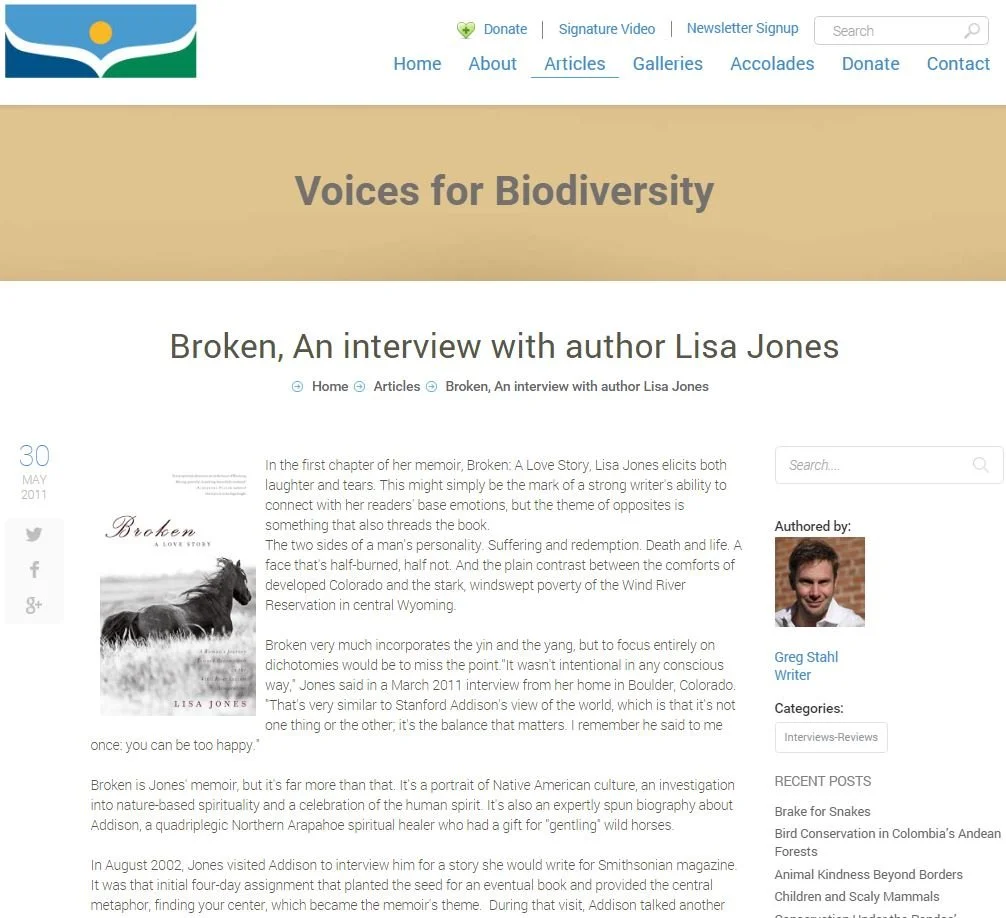Reporter and Writer (Voices for Biodiversity)
In the first chapter of her memoir, Broken: A Love Story, Lisa Jones elicits both laughter and tears. This might simply be the mark of a strong writer’s ability to connect with her readers’ base emotions, but the theme of opposites is something that also threads the book.
The two sides of a man’s personality. Suffering and redemption. Death and life. A face that’s half-burned, half not. And the plain contrast between the comforts of developed Colorado and the stark, windswept poverty of the Wind River Reservation in central Wyoming.
Broken very much incorporates the yin and the yang, but to focus entirely on dichotomies would be to miss the point.”It wasn’t intentional in any conscious way,” Jones said in a March 2011 interview from her home in Boulder, Colorado. “That’s very similar to Stanford Addison’s…”
Click here to read more of this story, written for Voices for Biodiversity, an anthropological e-zine that works on “connecting the human animal to the global ecosystem.”
https://voicesforbiodiversity.org/articles/broken-an-interview-with-author-lisa-jones-by-greg
The Tendoy Store on the banks of eastern Idaho’s Lemhi River is a place arrested in time and frozen in the annals of the Pacific Northwest’s rich salmon fishing heritage. Among the small general store’s charming clutter are groceries, t-shirts, tube socks, post office boxes and a small assortment of dry flies mounted to a white sheet of cardboard.
For more than sixty of her ninety-two years, Viola Anglin has owned and operated the Tendoy Store, but those decades have come with unexpected and unwelcome change. Anglin misses the long-ago mornings when salmon fishermen swarmed her wares, buying salmon eggs and filling up on enough calories to sustain them during days casting lines on the Lemhi.
“I was an angry old lady when the salmon fishing was no more,” she said. “I had loved it and made a terrific living in those days. But when it was gone…”
Click here to read more of this 5,000-word feature, written for Izilwane, an anthropological e-zine that works on “connecting the human animal to the global ecosystem.”
https://voicesforbiodiversity.org/articles/those-dammed-salmon-by-greg-stahl

